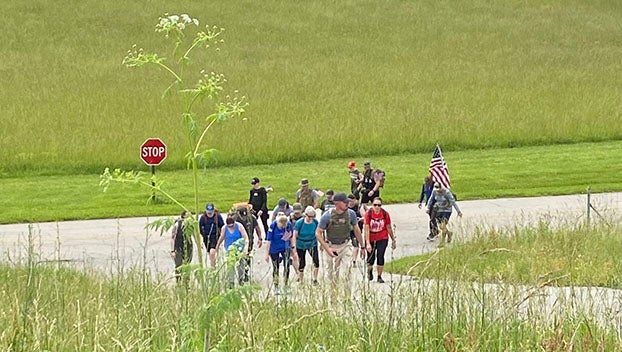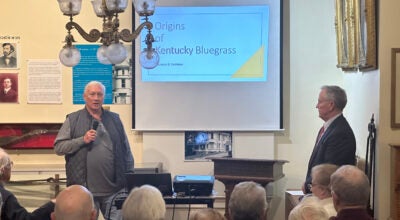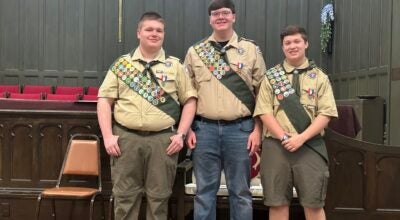Memorial Day march continues the fight against veterans suicide
Published 3:49 pm Thursday, June 1, 2023

- The Veteran’s Suicide Awareness Walk, which came through Winchester on Memorial Day, raises awareness for the many veterans facing a different kind of battle. (Photo submitted)
|
Getting your Trinity Audio player ready...
|
Memorial Day is a day to celebrate those willing to make sacrifices overseas for the United States.
However, it is also a day to remember those fighting a different battle at home.
The seventh annual Veteran Suicide Awareness Walk took place on Monday to honor those in the military who have and continue struggling with clinical depression and other mental illnesses.
“According to studies that are out there currently, between 20-22 veterans per day commit suicide,” said Ben Joynt, an organizer of the Veteran Suicide Awareness Walk. “One of the things that we try to do is bring awareness to that.”
To do so, individuals take part in a 22-mile road march yearly while carrying a minimum of twenty-two pounds.
With an interest in helping veterans, many have decided to participate.
“We have typically anywhere from fifteen to thirty people show up,” Joynt added. “We have a ton of people helping us out. We always have a lot of support from local organizations [and] local businesses.”
The route starts at White Hall Park in Richmond just off Exit 95 on Interstate 75, and ends at the Veterans of Foreign Wars Post 2728 on Sterling Street in Winchester.
While some people are involved with the walk itself, others still contribute by doing such tasks as handing out bottles of water for those taking the journey.
Boonesboro Supply, owned and operated by current Clark County Judge-Executive Les Yates, is one such business that welcomes walkers.
“Every time that we pass by there, he is kind enough to open up his business for us to use the restrooms and whatnot,” Joynt said. “He puts on a really good spot for us.”
While community support is welcome, the goal of starting a conversation about issues surrounding veterans’ suicide and suicide, in general, is at the forefront of the organization’s pursuit.
With approximately 22 veterans dying due to the cause each year, over 8,000 veterans might pass away from suicide yearly.
Joynt notes that addressing mental health isn’t easy.
“The main focus of what we’re doing is we’re trying to break the stigma of asking for help. We’re trying to break the stigma behind mental health treatment”, he said. “If you hurt your knee or if you hurt your ankle, there’s no stigma behind going to the doctor…and doing what you have to do to get that injury fixed. When you’re dealing with things like PTSD or something like that, that is a mental health injury that someone sustained, but it seems like there’s a stigma to getting that treated via therapy, meds, or anything like that.”
However, prioritizing mental health care is essential.
“One of the main things that we do is we try to stress the fact that your mind is just like anything else,” Joynt said. “You have to take care of that.”
In addition to medical needs and seeking counseling, the organization stresses being around a supportive environment.
While acknowledging that all the answers might not be available at once, Joynt states that making others aware has the benefit of starting a conversation, leading to better understanding.
“Nobody wants to have the conversation right after somebody has taken their own life,” he said.
Following Memorial Day, there are additional ways that individuals can continue empowering awareness.
“When people see that someone is feeling down or there’s something off with them, or they’re showing the signs of being depressed, definitely reach out to that person, talk to them,” Joynt said. “Basically, just reach out and be a good friend to that person. If it is a veteran that’s feeling like that, the first thing I would tell them is, ‘we are our own greatest resource.’ Reach out to your fellow veterans.”
Joynt notes that it is beneficial, especially in the case of veterans talking with each other.
“If anybody knows what it’s like to go through what they’re going through, it’s someone who has been through the exact same thing,” Joynt added.
To speak with the Veterans Crisis Line, open 24/7, dial 1-800-273-8255 and press 1. Those in need can also call their local VA office.





